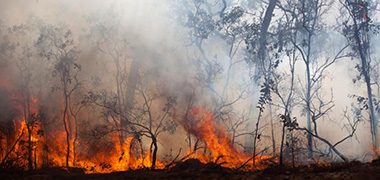
This role has a high level of AI exposure. While some human skills are required, many tasks could be automated or replaced by new technology.
Explore all careersSustainability Officers help organisations lower emissions and carbon footprints by developing sustainability plans and ensuring ethical sourcing.
Get qualified to work as a Sustainability Officer with a course recognised across Australia. Speak to a training provider to learn more.











In Australia, a full time Sustainability Officer generally earns $1,500 per week ($83,200 annual salary) before tax. This is a median figure for full-time employees and should be considered a guide only. As you gain more experience and technical expertise you can expect a higher salary than people who are new in the role.
 Courses.com.au Team
Courses.com.au Team
There are approximately 3,600 Sustainability Officers and Consultants employed in Australia right now. Sustainability Officers are mainly employed by corporate enterprises and private businesses in the industrial and agricultural employment sectors. They also thrive as independent consultants with their own business.
Source: Australian Government Labour Market Insights
 Courses.com.au Team
Courses.com.au Team
Sustainability Officers need professional VET qualifications or a bachelors degree. You can get started with the nationally recognised Diploma of Sustainable Operations. This qualification takes 12 months to complete and is a pathway to a degree in environmental science and resource management.
 Courses.com.au Team
Courses.com.au Team
Browse occupations related to Sustainability Officer



For those aspiring to become a Sustainability Officer, there are numerous Sustainability Officer courses in New South Wales designed to enhance your knowledge and skills in this vital field. These courses not only provide a strong foundation but are essential for individuals looking to actively contribute to environmental sustainability initiatives. With 9 available courses, including the highly regarded Certificate IV in Environmentally Sustainable Management and the Diploma of Sustainable Operations, learners will be well-equipped to tackle the challenges of sustainability in various industries across New South Wales.
The courses available in New South Wales provide invaluable insights into environmental management, sustainable operations, and many aspects of ecology. Options such as the Bachelor of Environmental Management and the Graduate Certificate in Planetary Health are perfect for those looking to pursue higher education. Furthermore, hands-on learning experiences allow students to connect theory with practice, opening doors to a variety of job roles such as Environmental Consultant and Sustainability Consultant.
Networking and collaboration are also integral to succeeding in the sustainability sector, and those enrolled in these courses often find opportunities to engage with industry professionals and peers. All training providers are reputable, either Registered Training Organisations (RTOs) or recognised by relevant industry bodies, ensuring quality education. Graduates can confidently step into roles such as Environmental Manager or Sustainability Manager, playing crucial roles in implementing sustainable practices within organisations.
With a diverse range of courses, individuals in New South Wales can tailor their education to match their career ambitions. Whether you are interested in the practical aspects of sustainability with courses like the Certificate IV in Home Energy Efficiency and Sustainability or wish to delve deeper into environmental research through the Graduate Diploma in Environmental Science, there is something for everyone. As a Sustainability Officer, you will be at the forefront of promoting responsible practices, enticing organisations to adopt new solutions.
Start shaping your career by exploring the Sustainability Officer courses in New South Wales today. Equip yourself with the necessary qualifications that not only advance your career but also contribute significantly to a sustainable future. In an era where environmental concerns are becoming more prominent, skilled professionals are in high demand to drive forward positive change in areas such as conservation, ecology, and regulatory compliance. Connect with opportunities and become a key player in achieving sustainability goals in your community and beyond.